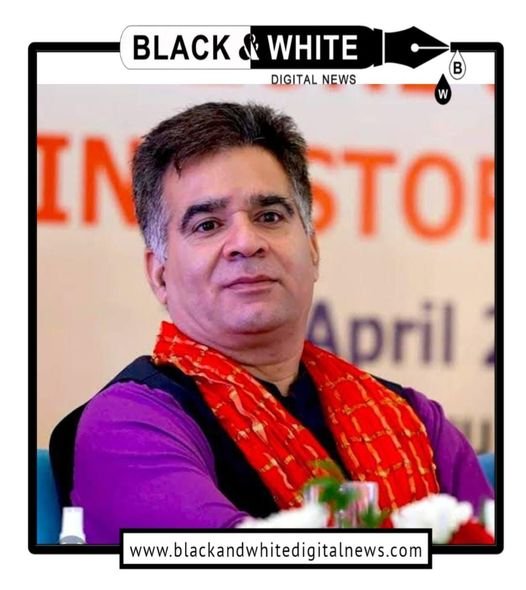Ravinder Raina Resigns as J&K BJP Chief After Defeat in Assembly Elections.
||Black and White Digital News||
||October 9, 2024||
In a significant political development, Ravinder Raina, President of the Jammu and Kashmir unit of the Bharatiya Janata Party (BJP), has resigned from his position following the party’s subpar performance in the recently concluded Jammu and Kashmir Assembly elections. The elections have led to a reshaping of the political landscape in the region, with the National Conference-Congress alliance securing a decisive majority.
Ravinder Raina, who contested from the Nowshera constituency, received 27,250 votes but was defeated by National Conference candidate Surinder Kumar Choudhary. Choudhary won with a margin of over 7819 votes, marking a significant victory for the National Conference in what was considered a competitive seat. Raina’s defeat, along with the BJP’s overall disappointing performance in the state, has raised questions about the party’s strategy and leadership in the region, prompting Raina to step down from his post.
A Crushing Defeat for the BJP in Nowshera:
The Nowshera constituency was closely watched as it had been a battleground for political dominance in the region. Ravinder Raina, a key BJP leader in Jammu and Kashmir, was expected to put up a strong fight. However, the voters chose to back the National Conference, which emerged as a stronger force in the area. Surinder Kumar Choudhary’s win by such a large margin indicates a shift in the electorate’s preference and a clear message from the people of Nowshera.
The defeat in Nowshera, where Raina was a prominent figure, has dealt a major blow to the BJP’s morale. Having served as the president of the Jammu and Kashmir BJP since 2018, Raina had overseen the party’s efforts to expand its influence in the region, especially after the abrogation of Article 370. Despite these efforts, the election results revealed a growing dissatisfaction among the electorate, leading to significant losses for the BJP.
National Conference-Congress Alliance Crosses Majority Mark:
While Ravinder Raina’s resignation signals the BJP’s struggles, the election results were a major boost for the National Conference-Congress alliance, which successfully crossed the majority mark in the Jammu and Kashmir Assembly. This victory is being viewed as a resurgence of traditional political forces in the region, with the National Conference and Congress capitalizing on local issues and dissatisfaction with the BJP’s policies.
The alliance’s triumph not only showcases their ability to unite voters across diverse communities but also underscores the challenges the BJP faces in maintaining its grip on the region, particularly in areas where they had once been strong contenders.
The Fallout of the Elections and the Road Ahead for the BJP :
Ravinder Raina’s decision to resign from his post is being seen as a step toward accountability. By stepping down, Raina is acknowledging the party’s failure to meet voter expectations in a region where the BJP had invested considerable political capital. However, his resignation also opens the door for new leadership within the state unit, which will now have the task of rebuilding the party’s image and preparing for future political challenges.
Political analysts have pointed to several factors that may have contributed to the BJP’s defeat, including the unresolved issue of Jammu and Kashmir’s statehood, which has been a key demand among voters. Additionally, the party’s handling of local issues, such as unemployment and infrastructure development, may have further alienated sections of the electorate. The National Conference and Congress, on the other hand, were able to tap into these concerns and present themselves as viable alternatives, resulting in their sweeping success.
For the BJP, Ravinder Raina’s resignation marks a moment of reflection. The party will need to re-evaluate its approach to Jammu and Kashmir, addressing both national and local concerns, if it hopes to regain its footing in future elections.
Ravinder Raina’s resignation as the Jammu and Kashmir BJP President following his defeat in Nowshera is a pivotal moment in the region’s politics. His departure highlights the shifting political dynamics in Jammu and Kashmir, where the National Conference-Congress alliance has emerged as the dominant force. As the BJP faces a challenging road ahead, the party must regroup and recalibrate its strategy to better connect with the voters of Jammu and Kashmir, who have sent a clear message through the ballot box.



